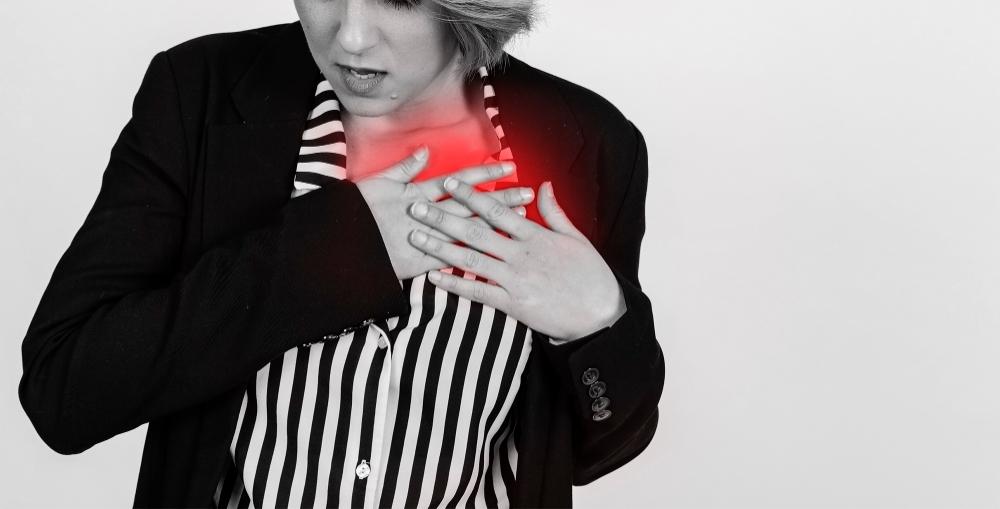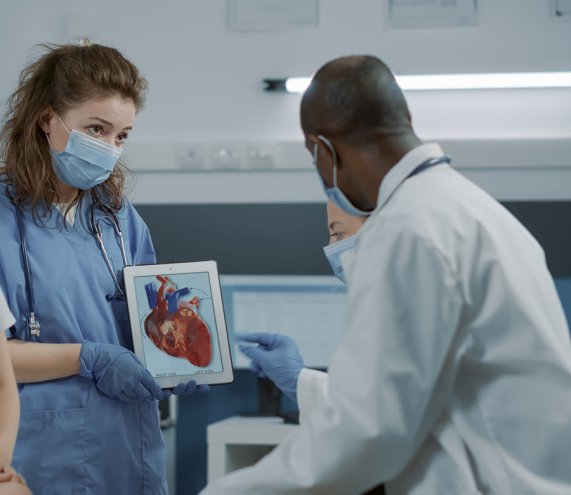Strokes and heart attacks top the list of life-threatening medical emergencies. Both can strike without warning, making it important to recognize their unique signs and symptoms. At Capitol Cardiology Associates, our goal is to arm you with the knowledge to act decisively when seconds count. Whether you're learning to protect yourself or care for someone else, understanding these conditions could save a life. Here's what you need to know.
What Happens During a Stroke?
A stroke occurs when blood flow to a part of the brain is interrupted or dramatically reduced, which deprives brain cells of oxygen. Ischemic strokes account for about 87% of all strokes and are caused by a blood clot blocking a vessel in the brain. Hemorrhagic strokes happen when a blood vessel bursts, which leads to bleeding in or around the brain. Signs of a stroke usually come on suddenly and can include difficulty speaking, drooping on one side of the face, numbness or weakness on one side of the body, loss of coordination, and severe headaches. Time is of the essence in these cases. Getting to the hospital quickly increases the chances of receiving life-saving treatments like clot-busting drugs or specialized interventions. Strokes are serious business, but the good news is they’re often preventable. Controlling risk factors like high blood pressure, smoking, and diabetes can go a long way in reducing your chances of experiencing one. Working with a heart doctor to manage these risks is one of the smartest steps you can take for your health.
What You Need to Know About Heart Attacks
A heart attack, or myocardial infarction, occurs when blood flow to a part of the heart is blocked, usually due to a buildup of fatty deposits or a blood clot in the coronary arteries. Without adequate blood flow, the affected portion of the heart muscle begins to suffer damage. Symptoms of a heart attack may vary between individuals, but some common red flags include chest pain or discomfort that’s often described as pressure, tightness, or squeezing. Most also report pain that radiates to the arms, neck, or jaw, shortness of breath, nausea, lightheadedness, and cold sweats. These symptoms can be mild or severe, but they should always be taken seriously. A heart attack isn’t something you can "wait out." If you or someone you’re with is experiencing these symptoms, call 911 immediately. Early treatment is key to minimizing damage to the heart and improving the outcome. Cardiologists in Riverdale often stress the importance of regular check-ups to catch heart disease early and address risk factors like high cholesterol or obesity before they lead to a crisis.
How to Recognize the Difference
The biggest challenge in an emergency can be determining whether someone is having a stroke or a heart attack. While they’re both critical medical conditions, the areas of the body they affect are different since one involves the brain, and the other targets the heart. The symptoms offer some clues. Stroke signs will affect movement, speech, or vision because they stem from brain dysfunction. Heart attacks tend to manifest as pain or pressure in the chest, along with systemic signs like nausea or sweating. However, it’s not always straightforward. For instance, a stroke caused by a clot that travels from the heart may mimic certain heart attack symptoms. That’s why medical evaluation is non-negotiable in any suspected case. The best approach is to focus on speed rather than trying to diagnose the problem yourself. Emergency responders are trained to recognize these conditions and start treatment right away.
Why Every Second Counts
When it comes to strokes and heart attacks, time is your greatest asset. Medical professionals often use the phrase “time is brain” for strokes, meaning every minute that passes without treatment increases the risk of permanent brain damage. Similarly, in the case of a heart attack, every delay can lead to greater damage to the heart muscle. If someone is having a stroke, remember the acronym FAST:
- Face drooping
- Arm weakness
- Speech difficulty
- Time to call 911
For heart attacks, focus on the Golden Hour, which is the critical window in which treatments like angioplasty or clot-dissolving medications can restore blood flow and save heart muscle. It’s also worth emphasizing the importance of CPR if someone goes into cardiac arrest. Immediate chest compressions can keep oxygen circulating to the brain and other vital organs until professional help arrives.
Prevention Is The Best Solution
While it’s important to know how to act in an emergency, prevention should always be the first line of defense. Strokes and heart attacks share many of the same risk factors, such as high blood pressure, high cholesterol, smoking, obesity, and physical inactivity. Regular check-ups with a heart doctor can help you stay ahead of issues. If you already have conditions like atrial fibrillation or a family history of heart disease, working with a dependable cardiologist can provide strategies to protect your health. This might include medication, lifestyle changes, or more advanced interventions like monitoring for arterial plaque buildup.
Are You Concerned About Your Heart Health?
At Capitol Cardiology Associates, our team of experienced cardiologists is here to help you every step of the way, from prevention and diagnosis to treatment and recovery. We prioritize compassionate care, state-of-the-art technology, and personalized plans to meet your unique needs. Don’t wait until it’s too late to take control of your health. Whether you’re managing risk factors or need urgent medical advice, a heart doctor can help ensure better outcomes. Call us today to schedule a consultation.






